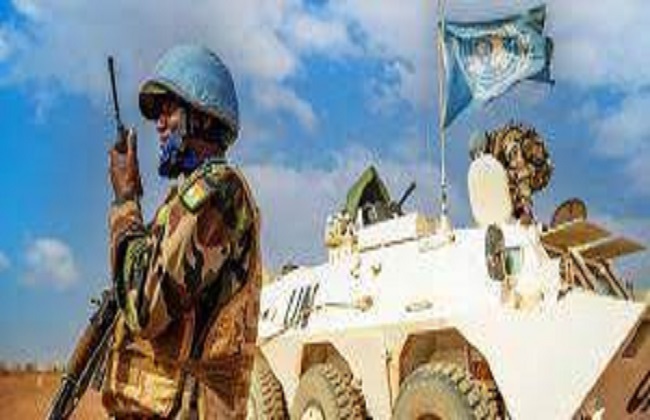
Going back to the 16th century and continuing through the late 1960s, France was described as the world’s second largest colonial power—just behind the British Empire.
As the old saying goes: The sun would never set over the British Empire because God wouldn’t trust an Englishman in the dark. But would that also apply to the French colonial empire?
The military coups in three former French colonies — Burkina Faso, Mali and more recently Niger – are perhaps an indication of the beginning of the end of French post-colonial and neo-colonial ties to West Africa.
The three military leaders are turning towards Russia and the Russian mercenary group Wagner for new political, economic and military alliances.
The headline in a New York Times article last week read: “Waning Influence for France, the Colonizer that Stayed in West Africa “
The coup in Niger, a landlocked country of about 25 million people, is likely to result in the departure of more than 2,500 Western troops, including 1,100 Americans, who were stationed in the West African country to battle anti-US and anti-Western militant groups.
In Niger, there was also strong public support for the Russians, with demonstrators waving Russian flags.
Stephen Zunes, Professor of Politics at the University of San Francisco, told IPS many Africans harbor understandable resentment towards French neocolonialism and their local collaborators.
“Unfortunately, despite the lack of a colonial legacy, the Russian influence is even worse. They are backing some of the region’s worst warlords, reactionary military leaders, and criminal elements,” he said.
Asked for his comments, US State Department Spokesperson Matthew Miller told reporters: “I have heard questions about these protests, sometimes in this briefing room, and sometimes you see people assume that because you see people on the streets it is an expression of actual support rather than people who might have been paid to show up at protests”.
Playing down the pro-Russian demonstrators, he said: “It does seem odd to me that if your country is suffering an attempted military takeover, the idea that the first thing anyone would do is run to a store and buy a Russian flag. That strikes me as somewhat an unlikely scenario.”
Miller also said that Yevgeniy Prigozhin, head of the Wagner Group, was publicly celebrating the events in Niger and “we certainly see Wagner take advantage of this type of situation whenever it occurs in Africa”.
“We, as I’ve stated before, did not see any role by Wagner in the instigation of this attempted takeover, and we have not seen any Wagner military presence as of yet in Niger. I don’t have any specific Wagner activities to – that I can make public at this point, but we saw Yevgeniy Prigozhin publicly celebrating what’s happened. And as I said, it did seem a very odd event that we had a bunch of Russian flags show up at so-called protests – in support of the junta leaders,” he added..
Perhaps the longest and bitterest battles against French colonialism took place in North Africa during the Algerian war of independence.
That battle was a major armed conflict between France and the Algerian National Liberation Front (NLF) from 1954 to 1962, which led to Algeria winning its independence from France and represented “the most recent and bloodiest example of France’s colonial history on the African continent”, with approximately 1.5 million Algerians killed and millions more displaced in the eight-year struggle for independence.
A posting on the Foreign Policy website August 8 said Niger’s coup leaders had one week to relinquish power and reinstate ousted President Mohamed Bazoum or else face military intervention by the Economic Community of West African States (ECOWAS).
At midnight on Sunday, that deadline expired without Bazoum being reinstated. Now, Niger and its neighbors are preparing for possible war—and ECOWAS, which plans to hold a second emergency summit is questioning whether issuing its unprecedented threat was a smart idea to begin with.On Sunday, Niger’s junta government sent troop reinforcements to the capital, Niamey, and closed Niger’s airspace to brace for ECOWAS’s potential invasion. A senior U.S. diplomat held “frank and at times quite difficult” talks on Monday with junta leaders, who rejected calls to restore democracy, according to Foreign Policy.
Asked about the Russian influence in Niger, US Secretary of State Antony Blinken told reporters August 7 “for sure we have concerns when we see something like the Wagner Group possibly manifesting itself in different parts of the Sahel, and here’s why we’re concerned: because every single place that this group, Wagner Group, has gone, death, destruction, and exploitation have followed.”
He said insecurity has gone up, not down. It hasn’t been a response to the needs of the countries in question for greater security.
“I think what happened and what continues to happen in Niger was not instigated by Russia or by Wagner, but to the extent that they try to take advantage of it – and we see a repeat of what’s happened in other countries, where they’ve brought nothing but bad things in their wake – that wouldn’t be good,” Blinken declared.
Thalif Deen is a former Director, Foreign Military Markets at Defense Marketing Services; Senior Defense Analyst at Forecast International; and military editor Middle East/Africa at Jane’s Information Group, US.


